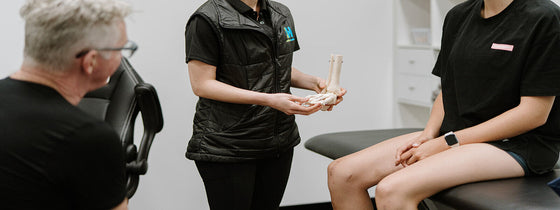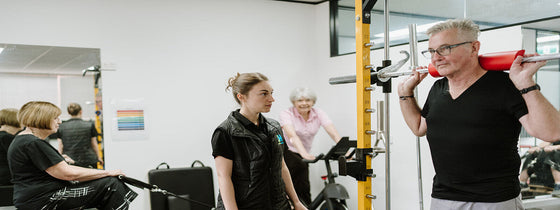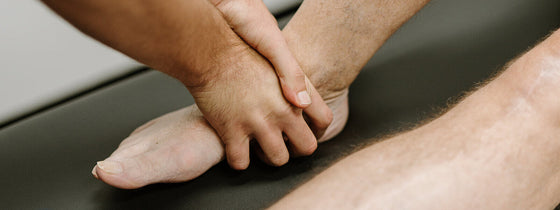Returning to exercise after the birth of your baby can be difficult to navigate. There can be a lot of pressure to rush back into exercise quickly to see your friends, feel like you again and/or get your “pre baby body back”. Sadly, there is a lot of conflicting information and advice on the internet and social media about what is quickest or best, but ultimately what medical evidence and my experience as a Women’s and Pelvic Health Physio can assure you that there is no one size fits all recipe or program for everyone. That’s why its so important to be guided by an expert in the area who can assess you individually and guide you safely through the process.
There are many factors that can influence recovery post-partum including type of delivery (vaginal vs caesarean), complicated vaginal delivery, muscle injury during birth, breastfeeding, pelvic floor dysfunction, previous level of fitness prior to pregnancy and delivery, plus what type of exercise you want to return to and when! Let myself, Kirsty, and my team of understanding fellow physiotherapists at OHL help you navigate you through this time by acting as your cheerleader (combined with body’s own OH&S manager).
Here’s some basic guidelines to help you plan when to present to the clinic and understand a little more about the exercise journey ahead…
0-6 weeks: pelvic floor exercises, gentle walking.
6 weeks – a post-partum check with a pelvic floor physiotherapist is recommended to assess the function, strength and co-ordination of your pelvic floor. Let’s face it, these muscles have been through a pretty traumatic experience and need some rehab before you can expect them to function as they did previously. If your physiotherapist finds weakness and dysfunction, they will prescribe a series of exercises to strengthen the pelvic floor and abdominal wall. Restoring optimal pelvic floor function is the goal and often requires at least 3 months of targeted strengthening before a maintenance routine can be adopted.
6-12 weeks: increased intensity of pelvic floor exercise, start core and body weight exercise and light weights.
12-16 weeks: progression of pelvic floor and core exercises to include fast muscle contractions and longer holds, as well as light weights and gradual introduction to higher impact exercise. (Current guidelines state that running should not commence before 12 weeks post-partum).
16 weeks onwards: continue to progress pelvic floor and core exercise, progression of weights, increased high impact exercise and return to sport (ie netball)
These guidelines are to prevent pelvic floor dysfunction in the immediate future and later in life, but also to help your safely return to your favourite exercises without worry! Within our clinic we can help you find your confidence with exercise again through tailoring a home program for you and/or introduce you to our Group Physio class programming (including family-friendly classes), which has been altered in COVID-19 times to 1:1 Physio Exercise Sessions. We can also help you find you any needed pain relief with Physiotherapy or Myotherapy treatment and, furthermore, introduce you to our food coach/ Dietitian Bonnie to ensure you’re fuelling yourself best!
Ultimately, please get in touch with our Women’s and Pelvic Health Physio Kirsty to sit down and plan how to get started on this road towards fabulously fit and strong once more! You can book an Initial Women’s and Pelvic Health Physiotherapy consultation via our online booking links and/or by calling us on 9431 5955.

If you're experiencing back or neck pain with neurological signs and symptoms, a thorough neurological examination is crucial for accurate assessment and effective treatment. In this Optimal Tip learn more about what we mean by completing a neurological exam!

Squats, deadlifts, and calf raises are key movement patterns that should be part of every strength and conditioning program—regardless of age and activity level. These functional movements support joint health, improve posture and balance, and reduce the risk of injury while building strength where it matters most.

A ganglion cyst is a fluid-filled swelling that typically forms over a joint or tendon sheath, causing discomfort and pain, especially when pressing against nerves or joints. Proper assessment and treatment, including physiotherapy, are essential for managing symptoms and improving function in the presence of a ganglion in your hand, foot, or wrist.